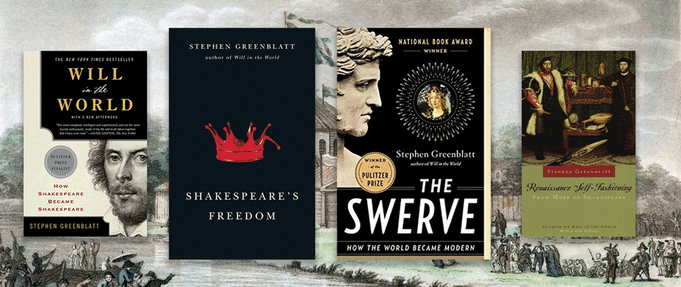A leading literary scholar, Stephen Greenblatt, has shaped our thinking, whether we know it or not, on numerous topics. Particularly in the fields of William Shakespeare, early modern literature and culture, religion, and literary theory, Greenblatt routinely flips widely held conceptions on their head, offering entirely innovative ways of thinking.
Among his numerous literary achievements, The Swerve—which explores how the discovery of an ancient text launched modern thought—won the 2011 National Book Award and the 2012 Pulitzer Prize. Additionally, the illuminating biography on Shakespeare, Will in the World, was a finalist for both these major prizes, solidifying his position as a major, if not the chief, authority on the playwright.
As such, beyond working as a Cogan University Professor of the Humanities at Harvard University, Greenblatt is the General Editor of both The Norton Anthology of English Literature and of The Norton Shakespeare. In addition to the titles above, he is the author of 15 books, many of which center on Shakespeare, from exploring the playwright’s thoughts on absolute power to examining the presence of ghosts across his work.
With the film adaptation of Maggie O'Farrell's Hamnet scheduled to release on November 26, 2025—which is a fictionalized account of Shakespeare’s son of the same name—there is no better time than the present to sink your heels into the wonderful literary criticism of Greenblatt.
In works such as Renaissance Self-Fashioning and The Swerve, you can delve more deeply into the world of Hamnet, where a cultural rebirth is taking place, one that the playwright brought to England in many ways. On the other hand, books like Practicing New Historicism and Shakespeare's Freedom can offer ways of viewing and contextualizing the period from a more critical lens.
Shakespeare is, without a doubt, one of the most influential writers in the English language. Whether or not you’ve read or studied his work before, turning to these nine works of Stephen Greenblatt can not only open new windows of thinking about the playwright but also the world.
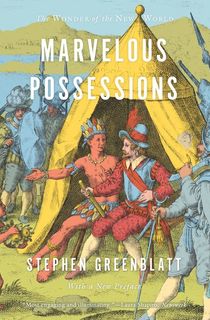
Marvelous Possessions
Drawing on travel narratives, judicial documents, and official reports, Greenblatt evaluates “the relationship between intruders and natives,” particularly when the Europeans of the late Middle Ages and the early modern period encountered the Indigenous population of the New World (Simon Schama, The New Republic).
Greenblatt argues that Columbus appropriated the experience of wonder in his representation of his so-called discoveries, ultimately serving his colonialist agenda. However, experiencing the effects of the wonderful is not solely an agent of empire, as exemplified by Mandeville's Travels, but can also serve as a means of recognizing and upholding cultural difference.
With all this in mind, Greenblatt seeks to find a happy medium in a time when hatred of the other has reached new heights, aiming to appreciate what different cultures have to offer through a filter of unpoisoned wonder. Described by the Times Literary Supplement as “a marvelous book [...] nothing so original has ever been written on European responses to ‘the wonder of the New World.’”
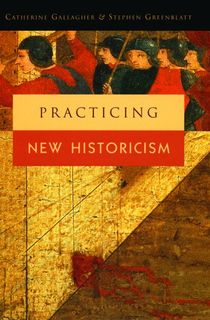
Practicing New Historicism
Since its inception, a literary theory called new historicism fundamentally that emphasizes the importance of understanding texts within their historical and cultural context has remained both influential and controversial. In Practicing the New Historian, Gallagher and Greenblatt, two of the movement's biggest proponents, join together in “a tour de force of new literary criticism” (Kirkus Reviews, starred review).
The duo, in a comprehensible dialogue, discusses the five central aspects of new historicism, ultimately arguing that it is founded on curiosity rather than abstract theory. By contrasting topics from the Renaissance and the nineteenth century, these renowned literary scholars from diverse fields illuminate a much-discussed and convoluted debate.
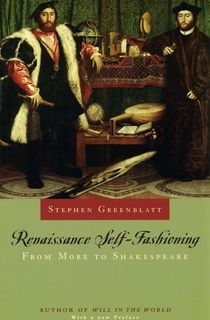
Renaissance Self-Fashioning
Now considered to be a foundational text in literary studies, Renaissance Self-Fashioning recanonizes the literature of the sixteenth century. Through examining the prominent literary figures of the English Renaissance—including Shakespeare, More, Tyndale, Wyatt, Spenser, and Marlowe—Greenblatt discovered that all these intellectuals were grappling with identity, particularly notions of selfhood.
In what Anthony Grafton, a historian and professor at Princeton, describes as “a classic of the human sciences, [that] taught two generations of scholars to read books and lives in radically new ways,” indulge in a remarkable work of Renaissance scholarship.
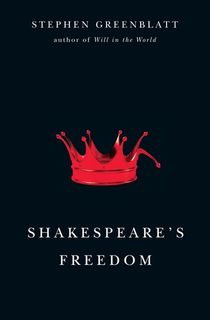
Shakespeare's Freedom
In an “analysis of both Shakespeare and the Renaissance [that] is informative and often original,” Greenblatt argues that the world of absolutes the playwright lived in was not one he willfully assumed. Instead, he often challenged the authority of the monarch, God, the old over the young, and other established norms.
Through this very rejection, Greenblatt identifies the freedom Shakespeare wrote about and pursued, viewed through the lenses of beauty, murderous hatred, and power across his works. Ultimately, Greenblatt assumes his own kind of Shakespearean autonomy, in which artists are free to express themselves as they see fit, unconstrained by laws or a singular vision.
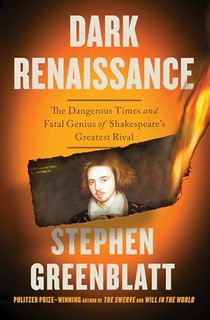
Dark Renaissance
Dark Renaissance is Greenblatt’s latest release, and although it is not centered on Shakespeare, the story follows his collaborator and rival, Christopher Marlowe. In sixteenth-century England, there was little room for expression, let alone of a creative kind.
But, in spite of this repression, a cobbler’s son emerged with an ear for Latin poetry and managed to carve out a place for himself in the English language, literature, and culture. Greenblatt begins with Marlowe’s youth, his involvement in the queen’s spy service, and how that gave way to the troubles he faced throughout the remainder of his life, while also inspiring his work.
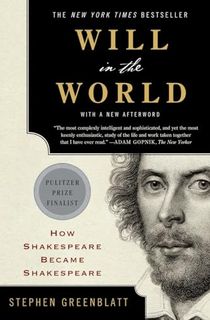
Will in the World
Among its long list of literary achievements, Will in the World was a finalist for both the Pulitzer Prize and the National Book Award, a New York Times Best Book of the Year, a Time's #1 Best Nonfiction Book, and much more. Stephen Greenblatt, a leading authority on Shakespeare, paints the playwright's life in vivid detail—from his early days in the provinces as a boy of little means, to becoming arguably the world’s greatest writer.
In the context of his greatest works—including A Midsummer Night's Dream, Romeo and Juliet, Hamlet, Macbeth, and more—Greenblatt illustrates the competitive theater world into which he emerged, where Shakespeare grappled with dangerous religious and political forces, while starting a family. With unexplored historical facts and tidbits, Will in the World is a one-of-a-kind biography, bridging the gap between the world of Shakespeare’s imagination and the real one he lived in.

The Swerve
Winner of the Pulitzer Prize, The Swerve firmly positioned Greenblatt as a leading scholar of our time. Over six hundred years ago, a manuscript was discovered in neglect that came to be recognized as the only surviving manuscript of an ancient Roman epic, On the Nature of Things, by Lucretius.
By copying and translating this ancient text, the Renaissance was set in motion, with a harem of incredible artists and thinkers, such as Botticelli and Giordano, inspiring generations to come. From Freud and Einstein to Shakespeare and Jefferson, the poem, which asserted that the world worked without gods and the presence of matter, ultimately shaped the reality we exist in today.
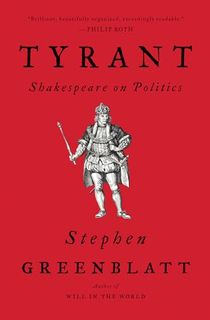
Tyrant
While the queen, Elizabeth I, held power, a young playwright entered the scene and began probing the nature of absolute power. From the tyrannical perspectives of Richard III, Macbeth, Lear, and others, Shakespeare considered the impacts on the societies they ruled, and how a lust for power often has disastrous consequences.
In questioning these rulers' narcissistic appetites, the playwright not only shone a light on such diabolical behavior but also began asking how we might stop them. As Greenblatt demonstrates, Shakespeare’s work in this field and beyond is applicable, if not more relevant, to the society we live in today.
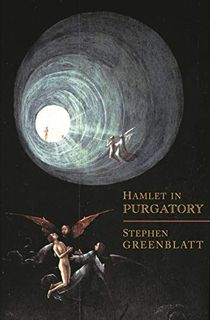
Hamlet in Purgatory
Fueled by his lifelong preoccupation with the ghost of Hamlet’s father, Greenblatt works to not only parse through medieval religion, but also to interpret what apparitions meant to Shakespeare. In the mid-sixteenth century, Christian English authorities transformed the passage for the dead, asserting that Purgatory was false.
In an innovative new reading, Greenblatt considers the beginning and end of the doctrine of Purgatory, notably how it became nothing more than a hollow institution, and how this translated to the playwright’s own grappling with life after death.
Featured image: Photo Images / Canva
